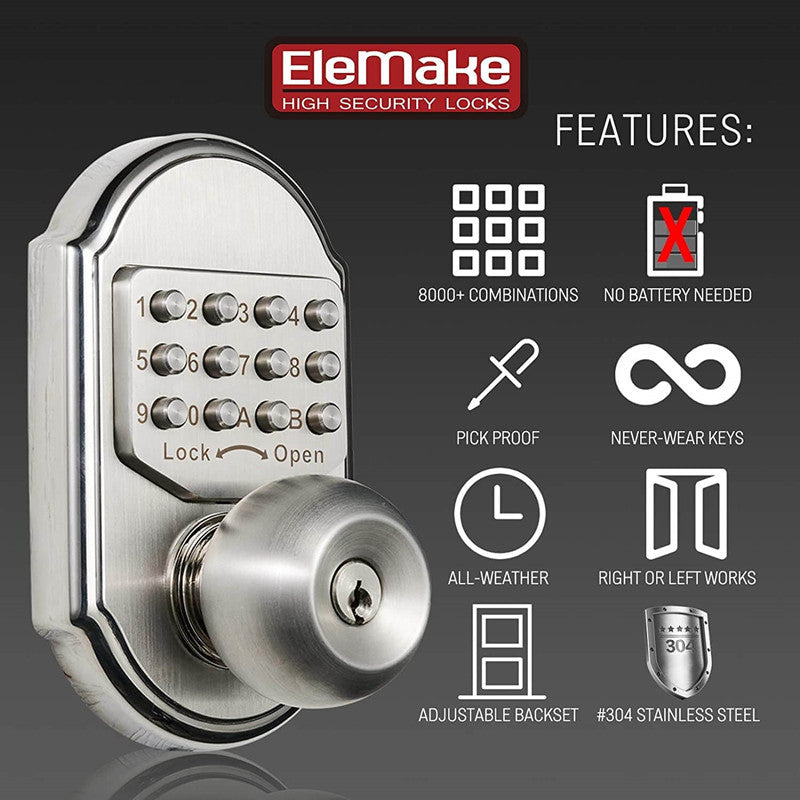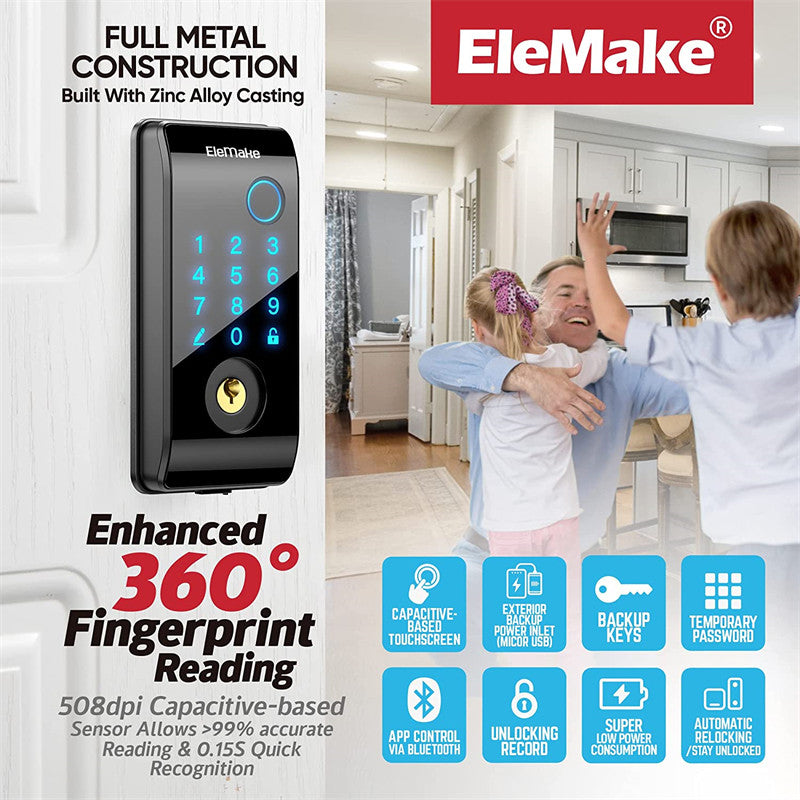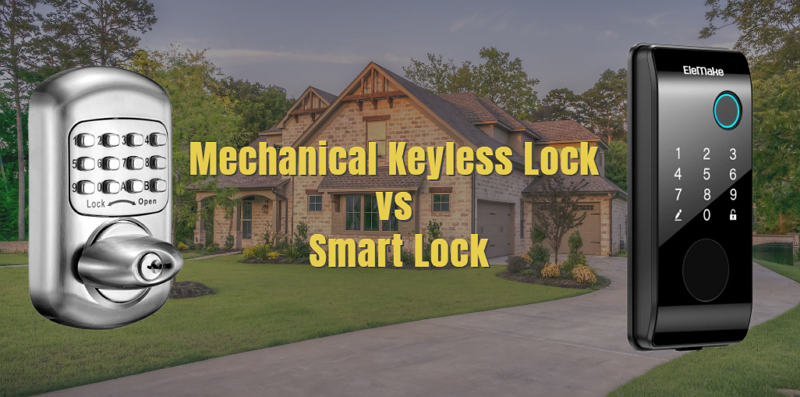Mechanical Keyless Door Locks vs. Smart Locks: Choosing the Best Option for Your Home Security
As technology continues to advance, traditional door locks have evolved into more sophisticated options to enhance home security and convenience. Mechanical keyless door locks and smart locks are two popular choices in the market today. Both offer unique features that cater to various homeowner preferences. In this article, we will delve into the key characteristics, advantages, limitations, and factors to consider when choosing between these two types of locks.
What Are Mechanical Keyless Door Locks
Mechanical keyless door locks are innovative devices that provide access to a property without the need for traditional keys. Instead, they utilize a numerical keypad where users input a pre-set combination to unlock the door. These locks operate mechanically, which means they do not require batteries or an external power source to function.

Pros of Mechanical Keyless Door Locks
- Enhanced Security: Mechanical keyless lock provides an added layer of security with its physical key and push-button code access options. The absence of electronic components reduces the risk of digital hacking or tampering, making it an attractive choice for security-conscious users.
- No Need for Keys: Homeowners no longer need to carry keys, reducing the chances of losing them.
- No Power Dependency: Since these locks are purely mechanical, they continue to operate during power outages or battery failures.
- Durability: Mechanical keyless locks are built to withstand harsh weather conditions, ensuring long-lasting performance.
Cons of Mechanical Keyless Door Locks
- Code Sharing: If a user unintentionally shares their access code, it could compromise security until the code is changed.
- Lack of Remote Access: Mechanical door locks do not offer remote control features, limiting accessibility from a distance.
- No Integration with Home Automation: These locks cannot be integrated into a broader home automation system.
What Are Smart Locks
Smart locks, on the other hand, utilize advanced technology and connectivity options to provide a seamless and secure access control solution. They can be operated remotely through a smartphone app or other compatible devices like Amazon Alexa or Google Home, offering homeowners greater control over their property's security.

Pros of Smart Locks
- Remote Access and Control: Smart locks allow users to lock or unlock their doors from anywhere using a smartphone, adding convenience and flexibility.
- Integration with Home Automation: Smart locks can be integrated into existing smart home systems, enabling users to incorporate them into routines and scenes.
- Multiple Access Methods: In addition to mobile apps, smart locks may offer other access methods such as key cards, biometric recognition, or voice commands.
- Activity Monitoring: Many smart locks provide activity logs, allowing homeowners to track who accessed their property and at what times.
Cons of Smart Locks
- Power Dependency: Smart locks rely on batteries or external power sources, and if these fail, there could be potential access issues.
- Cybersecurity Concerns: With smart features comes the risk of cybersecurity threats, although reputable manufacturers implement robust security measures.
- Compatibility Challenges: Some smart locks may not be compatible with all types of doors, requiring homeowners to check their door's specifications.
- Higher Cost: Smart locks are generally more expensive than mechanical keyless door locks due to their advanced technology.
Factors to Consider When Choosing Between Mechanical Keyless Door Locks and Smart Locks
Security Considerations
When it comes to security, both mechanical keyless door locks and smart locks have their merits. Mechanical locks offer simplicity and resilience against physical attacks, and prevent from digital hacking, while smart locks provide remote control and monitoring capabilities, which can be advantageous for frequent travelers.
Installation and Compatibility
Mechanical door locks are relatively straightforward to install since they do not require complex wiring or connectivity. Smart locks, on the other hand, might need additional setup and compatibility checks with the existing home automation system.
Convenience and Accessibility
Smart locks take the lead in terms of convenience, especially with their remote access features. For busy individuals or those who often forget to lock their doors, smart locks offer peace of mind and greater accessibility.
Integration with Home Automation
For homeowners with existing smart home setups, choosing a smart lock that integrates seamlessly with their current system can further streamline their daily routines.
Maintenance and Durability
Mechanical locks typically have a longer lifespan due to their mechanical nature, while smart locks require regular battery replacements and firmware updates.
Cost Comparison
Budget considerations play a crucial role in the decision-making process. Mechanical door locks are generally more budget-friendly, while smart locks require a higher investment due to their advanced technology.
Conclusion
Selecting the ideal door lock for your home is a significant decision that involves considering various factors. Mechanical keyless door locks are reliable, secure, and low-maintenance, making them suitable for homeowners who prioritize simplicity and durability. On the other hand, smart locks offer convenience, remote control, and seamless integration with smart home systems, making them an excellent choice for those seeking advanced features and accessibility. Ultimately, the best option depends on your specific needs and preferences.


